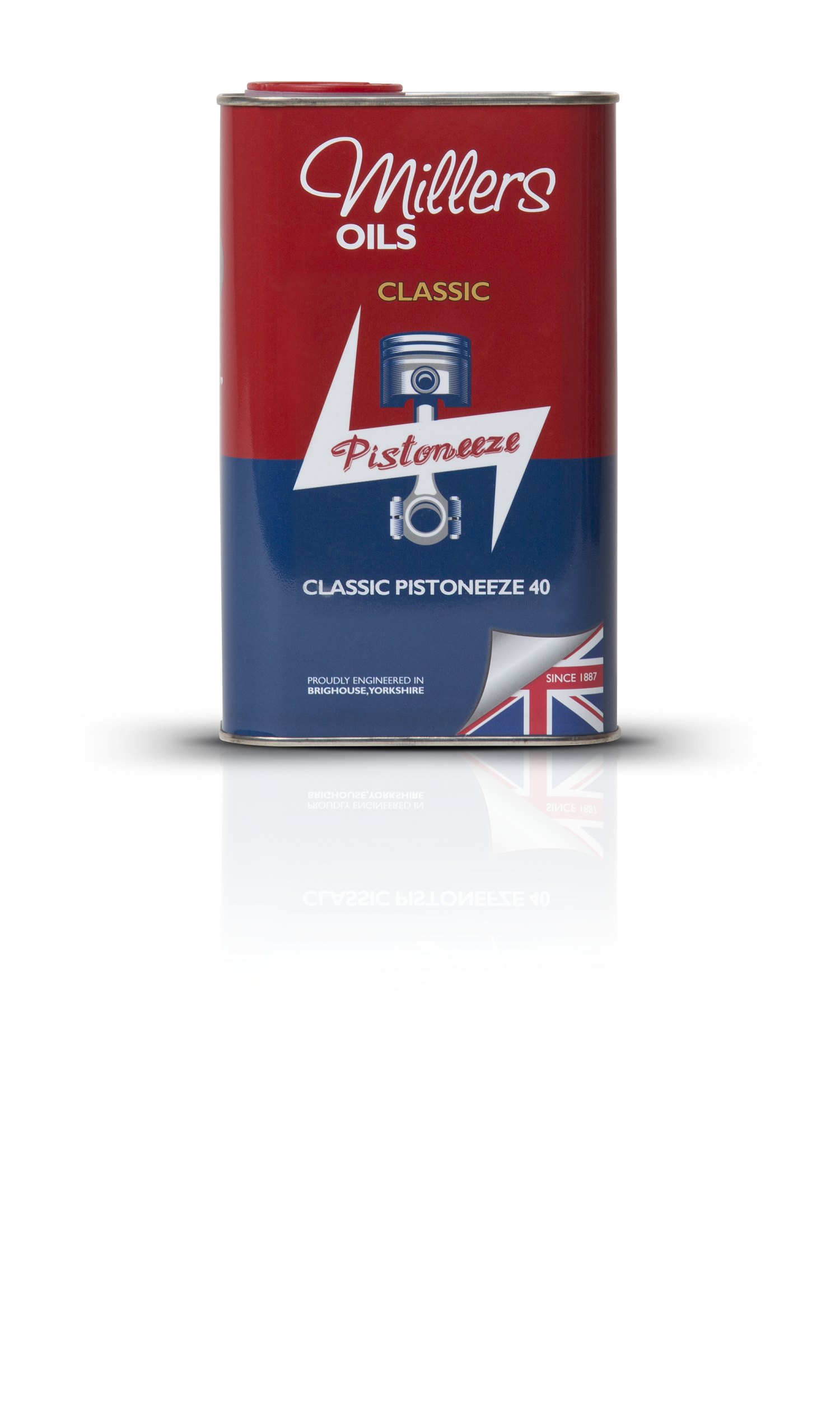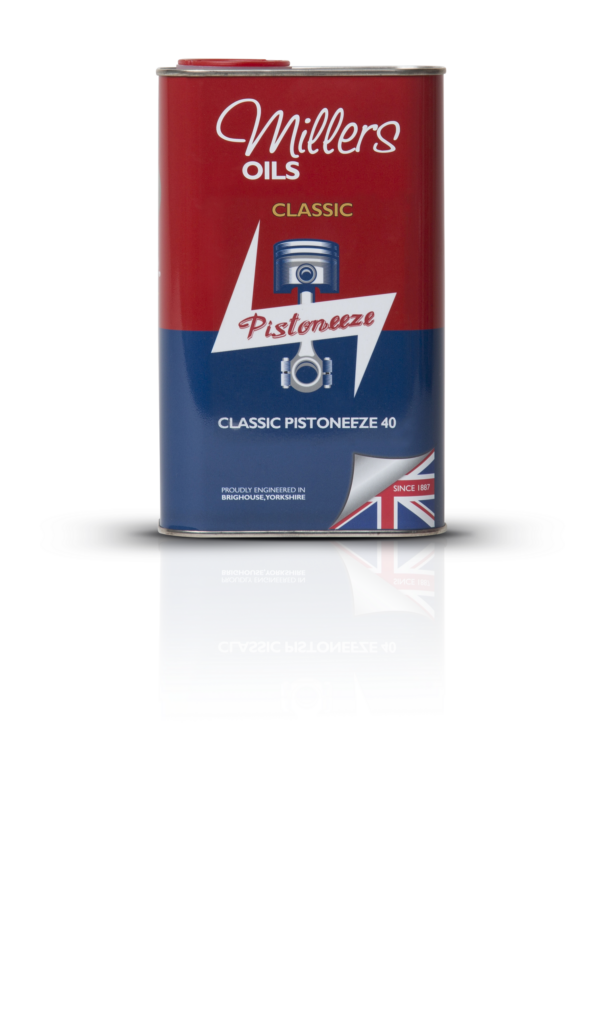 In the Millers Oils classic vehicle range there are a number of different types of engine oils, including mineral, semi synthetic and fully synthetic blends.
In the Millers Oils classic vehicle range there are a number of different types of engine oils, including mineral, semi synthetic and fully synthetic blends.
In the past there was concern around the use of synthetic oil in classic vehicles, however, modern technology has shown that this worry is misplaced. Here we outline why this is the case and hope to offer classic car owners peace of mind when choosing synthetic oils for their beloved vehicle.
What’s the difference between mineral oil and synthetic oil?
Oils used to formulate lubricants are called base oils and include both mineral and synthetic types.
Mineral oil is refined from a fraction of crude oil, using different techniques including solvent washing and chemical reactions to remove impurities and improve lubrication characteristics.
Synthetic oil, although still derived from crude oil, is made by chemical synthesis rather than refining of crude oil. This is a much more controlled process, meaning that the molecules in the oil are more uniform and exhibit the following benefits:
- Better lubricity for better protection reduced wear
- Improved viscosity index, meaning better and more consistent performance across a wider temperature range
- Higher thermal and oxidative resistance, so the oil is less likely to degrade due to high temperature or contamination, meaning fewer deposits and less sludge, as well as extended drain intervals.
- Reduced volatility and evaporation losses, resulting in lower oil consumption
Why is there reluctance behind synthetic oil use in classic vehicles?
In the late 1990s, synthetics were a new and increasingly popular technology, as oil companies started to introduce more synthetics into their classic oils.
However, classic car owners began experiencing oil leaks. It was discovered that there were compatibility issues with rubber seals on older vehicles that caused the rubber to perish and weep, leading to the leaks.
Are synthetics safe to use in classic cars today?
After much research and testing, we now know lots more about synthetic oil technologies. Millers Oils has developed synthetic products for classic vehicles that not only eradicate the past issues with rubber seal compatibility, but also allow classic car owners to reap the benefits of modern technology.
About Classic Pistoneeze from Millers Oils
Classic Pistoneeze is instantly recognisable thanks to the product’s vintage style packaging which harks back to the heyday of classic cars. The range includes a number of specialist classic engine oils available in monograde and multi-grade as well as specialist oil. Look out for Pistoneeze monograde engine oils (available in SAE viscosity grades 30, 40 & 50) as well as the new Pistoneeze multi-grade engine oils.

The full Pistoneeze range is also supported by three core values: providing high levels of protection, preventing ethanol corrosion, and protecting the nation’s motoring heritage.
Find out more
To find out more about the Millers Oils Classic range, including details on how to purchase the latest product introductions, please visit www.millersoils.co.uk or call 01484 713201.
ENDS
Words: 482
For more information, interviews or images please contact:
Kimberley Hornby, Millers Oils PR Team, Hornby Whitefoot PR
Tel: 07851 610573 Email: kimberley@hornbywhitefootpr.co.uk

